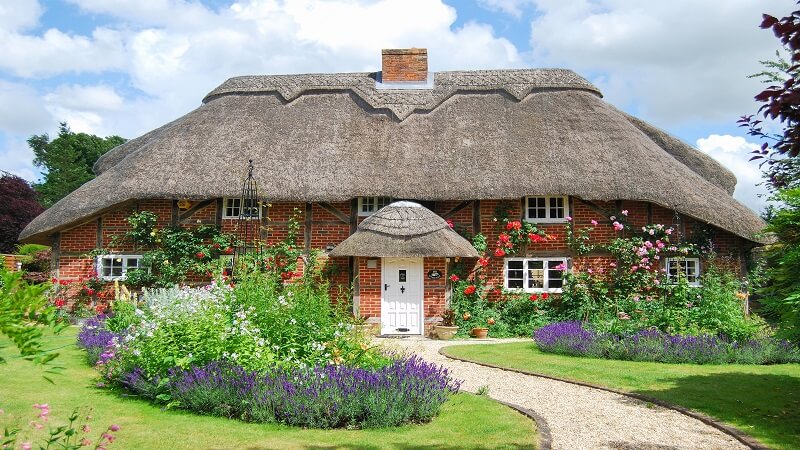An increasing number of Americans are dreaming of moving out of the city and into the country. It is very appealing, the notion of wide open spaces, fresh air, and a slower pace. A country house can be that personal getaway — a place where you can relax and commune with nature. But while there are stunning vistas, the reality of living outside the city is not quite as picturesque.
Before taking the plunge, it’s good to know the bright sides and the challenges of rural life. If you’re thinking about financing your move, a reputable South Carolina mortgage broker can ease the process and give you access to top loan products. This article will help you get a holistic view, so you can determine if a country home is a good fit for you.
Advantages of Owning a Country Home: Freedom, Space, and Lifestyle Perks
Among the biggest reasons for buying a country house is that there is more space. When you don’t have to live in urban settings, you will often get a large yard, privacy, and room to breathe — to stretch out. Ah, freedom: The great thing about country living is that you can have whatever garden, pets, or workshop you want, without fear of high-strung regulations or a neighbor with sensitive ears.
The air feels cleaner, too, so outdoor activities, such as hiking or gardening, are less unpleasant. For many, rural life’s slower pace is a major stress relief. There is less traffic, fewer throngs of people, and an opportunity to unplug from the speedy world of the city. You may experience less frantic, more focused days.
Lifestyle aside, price is another enticement. Land and houses in rural areas are often more affordable than in urban areas, so you’ll get more bang for your money. This means you are generally able to buy a larger house or more land than you could in town. Plus, country towns are typically close-knit, with a feeling of genuine belonging. Neighborly bonding. You usually end up knowing your neighbors, and local events bind everyone together in a manner that can be hard to replicate in large population areas. All of these factors are reasons that country living seems like a more healthful and balanced lifestyle. These are some great benefits of owning a country home:
- Privacy: Larger yards, wide-open spaces, and more room for outdoor hobbies — and animosity.
- Breathe fresh air: No more air pollution and dirty air to breathe.
- More affordable: In general, you’re going to get more bang for your buck, and more property for less stuffing one inside when you move outside of cities.
- Community connection: In a small town, relationships are frequently closer, and people are more likely to be supportive of local causes.
- Peace: Fewer close neighbors mean less noise and (in theory) less daily stress.
- The freedom to customize: When local zoning laws aren’t so restrictive, you can do more with your land.
Challenges of Rural Living: What the Country Life Doesn’t Tell You
The countryside has its charms, but it’s not all peaceful and idyllic. One major challenge is distance. Grocery stores, schools and medical care can be miles away, resulting in longer commutes and less convenience. If you’re used to on-demand for everything, that can be a tough pill to swallow.
Roads can be rather rough around the edges, particularly in lousy weather, making travel in the wintertime or heavy rains tricky or dangerous. The longer drive to schools can put additional stress on and time into families’ daily routines for those with kids. (Have a disaster plan: Emergency services might also be slow, so serious consideration is warranted.)
The other downside is fewer local job opportunities. If you don’t work remotely, a drive to a city or a town might be a long trip. That isolation could also mean less access to high-speed internet or cell coverage, impacting work and social life. Social activities can be more sparse as well — you may encounter fewer restaurants, shops, or cultural events than you’re used to. The silence can feel isolating — for social creatures in particular.
And of course, wildlife and pests are simply a fact of country living — deer in your garden, the odd brush with critters that chew a hole here or there in your property. These truths might not be immediately discernible, but can make a big — and often remarkable — difference in one’s everyday experience.
Hidden Costs and Maintenance Traps: What Can Surprise You
Owning a country house can have hidden costs that many newbies don’t realize. Maintenance is one of the most surprising aspects. Spreading Property Big properties mean big maintenance needs, including lawn care, driveway upkeep, and in some cases, managing septic systems or well water. Rural homes have private wells and septic tanks in stark contrast to city homes that are hooked up to city services, and rural homeowners may have to shell out expensive installation, repair, or maintenance costs if something goes wrong.
Heating and cooling expenses could also increase. Older homes in the country may not have the latest insulation or energy-efficient systems and thus yield higher utility bills. Winter snow removal and pest control in warmer months are additional ongoing expenses. Menacing with those spikes results in higher insurance premiums, particularly when your home is in a remote area in terms of fire stations and emergency services.
Another hidden expense, parts and repairs aside, is the time and energy that go into managing fixes on your own (or juggling contractors who aren’t in your immediate vicinity). If new country homeowners aren’t prepared, they can be blind sided by these financial and labor demands.

